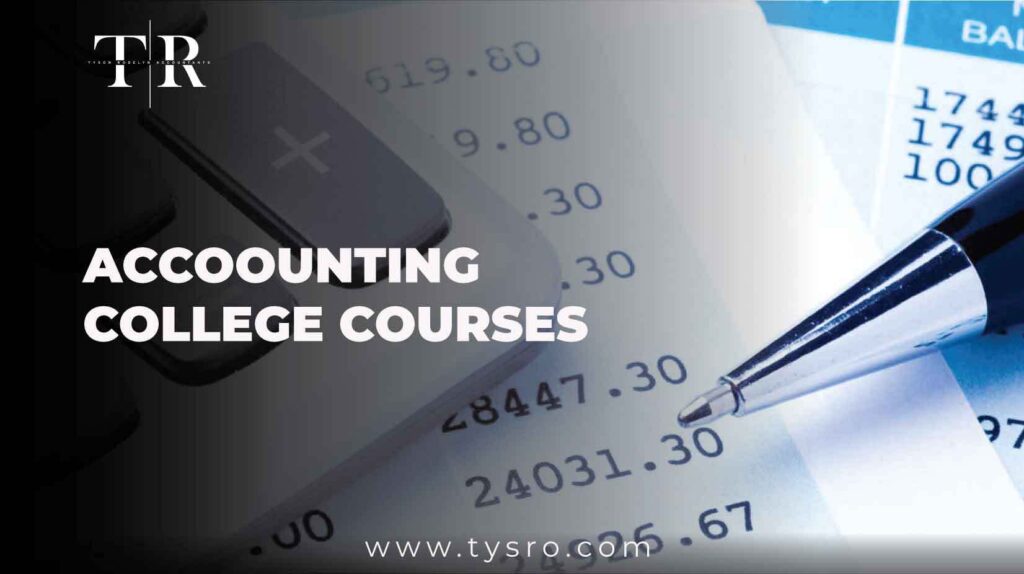When embarking on a career in accounting, choosing the right college course is crucial. With numerous options available in the UK, it’s essential to understand what each course offers and how it aligns with your career goals. In this guide, we’ll explore the various accounting college courses in the UK, provide a step-by-step guide to choosing the right course, and offer insights to help you make an informed decision.
Understanding Accounting College Courses
Why Study Accounting?
Before diving into specific courses, let’s address why accounting is such a valuable field. Accounting plays a vital role in businesses, non-profits, and government agencies. It involves managing financial records, ensuring compliance with regulations, and providing insights that drive strategic decisions. Studying accounting opens doors to various career paths, including roles in auditing, tax advisory, and financial management.
Types of Accounting College Courses
- Undergraduate Courses
Undergraduate courses are ideal for those new to the field or looking to build a strong foundation. These courses typically lead to a Bachelor’s degree in Accounting, which covers fundamental principles, financial reporting, and management accounting. In the UK, universities like the University College London (UCL) and the University of Manchester offer renowned undergraduate accounting programs. - Postgraduate Courses
For those who already hold an undergraduate degree or seek advanced knowledge, postgraduate courses offer specialized training. These include Master’s degrees in Accounting and Finance, which delve deeper into complex topics such as forensic accounting, financial analysis, and strategic management. The London School of Economics (LSE) and the University of Cambridge are excellent institutions providing these advanced courses. - Professional Accounting Qualifications
If you’re aiming to become a certified accountant, pursuing professional qualifications is essential. Organizations like the Association of Chartered Certified Accountants (ACCA), the Chartered Institute of Management Accountants (CIMA), and the Institute of Chartered Accountants in England and Wales (ICAEW) offer certification programs that are highly regarded in the industry.
Choosing the Right Accounting Course
Step 1: Assess Your Goals
Before enrolling, consider your career objectives. Are you aiming for a specific role within accounting? Do you want to work in a particular industry? Your career goals will guide your choice of course. For example, if you’re interested in financial analysis, a course with a strong focus on financial management might be ideal.
Step 2: Research Institutions
Different institutions offer various strengths in their accounting programs. Look for schools with strong industry connections, excellent faculty, and good career support services. The University of Edinburgh and the University of Bristol are known for their high-quality accounting programs.
Step 3: Consider the Course Content
Review the syllabus to ensure it aligns with your interests and career goals. Look for courses that offer practical experience, such as internships or project work. Practical experience is invaluable and helps bridge the gap between theory and real-world application.
Step 4: Evaluate the Accreditation
Ensure the course is accredited by a recognized body. Accreditation guarantees that the course meets high standards of quality and is recognized by employers. Check if the course is accredited by organizations like ACCA or ICAEW.
Step 5: Look at Costs and Funding
Consider the cost of the course and explore available funding options. Many institutions offer scholarships, grants, or financial aid. For example, the British Council provides various scholarships for international students.
Step 6: Check Flexibility
If you need to balance work and study, look for flexible course options. Many universities offer part-time or online courses, allowing you to study at your own pace. Institutions like Open University offer online accounting courses that cater to working professionals.
Success Stories: Real-Life Examples
John’s Journey to Becoming a Chartered Accountant
John, a recent graduate from the University of Leeds, began his career with a Bachelor’s degree in Accounting. He later pursued an ACCA qualification while working full-time. John’s dedication paid off, and he now works as a senior accountant at a leading firm. His journey highlights the importance of both education and professional certification.
Emma’s Experience with Postgraduate Studies
Emma completed her Master’s in Accounting and Finance at the University of Warwick and landed a role in forensic accounting. The advanced knowledge and skills she gained during her postgraduate studies were crucial in securing her position. Her story underscores the value of specialized postgraduate courses.
Why Buy Into Accounting College Courses with Confidence
Investing in Accounting College Courses is a significant decision, but with careful consideration and research, you can make an informed choice that aligns with your career aspirations. By selecting a reputable institution, pursuing accredited qualifications, and considering your personal goals, you’ll be well on your way to a successful career in accounting.
For more information on accounting courses in the UK, visit the UK Government’s Education and Training website or consult with academic advisors at your chosen institution.


